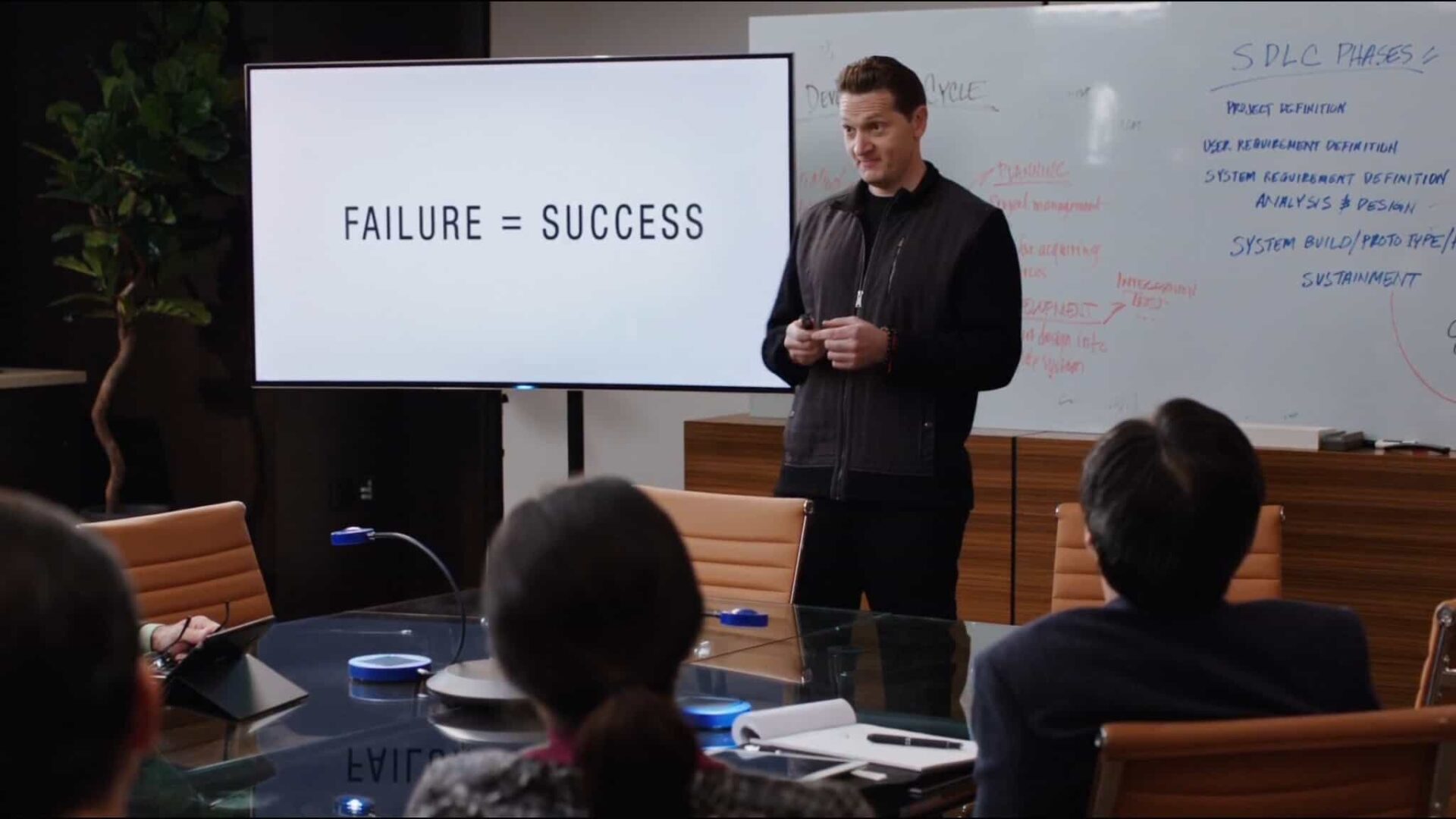I love the show “Silicon Valley” and I just “binge watched” all ten episodes of Season 2 while traveling home from vacation. A few scenes from two episodes made me think about continuous improvement (yeah, even while on vacation).
When talking about Lean or Kaizen (continuous improvement), people often say things like “failure is a learning opportunity.”
I've said it, and it makes sense in the context of structured experiments in workplace improvement, or the Plan Do Study Adjust (PDSA) cycle.
We “plan” (understand the problem and consider causes and alternatives), then we “do” (test the change at a small scale). Then, we “study” to see if our change is really an improvement. We're leaving open the possibility that we discover our idea didn't work out. If things didn't work out, we “adjust” and go try something else. We recognize what we learned from our attempt and get better as a result.
If we insist on every improvement idea being successful, then people get VERY cautious. They'll be far less willing to try anything if they fear punishment or derision. In my experience, we get more improvement by allowing some “failures” to occur. Of course, small tests of change minimize the risk of failure. And, that permission to fail doesn't give us permission to do wild and crazy things.
So, as season 2 of Silicon Valley progresses, the big company Hooli has a very public failure in their attempt to stream a live UFC match as a demonstration of their data compression technology, Nucleus.
Apparently, Hooli CEO Gavin Belson is taken to task by his board. In a meeting, Belson asks his board, “What is failure?”
He's making the quotation mark fingers gesture in this photo… as in it's not a failure, it's a so-called “failure.”

Belson says to the board:
“To the ignorant, or those in conventional industries, the recent Nucleus glitch might seem like a failure, purely in the negative sense, but we all in this Valley know ‘failures' (just like this one) are really stepping stones.”
Belson then brilliantly compares himself to Steve Jobs and Mark Zuckerberg by pointing out their failures that preceded Apple and Facebook.
He continues:
“The point being, what those dying business sectors call failure, we in tech know to be pre-greatness.”
The board is, to say the least, skeptical. A board member asks if he's saying that the failure was a good thing.
Belson says:
“No, history is telling you that.”
As he brings up a screen that says “Failure = Success.”

Listen to Mark read the post (subscribe to the podcast):
It seemed perfectly clear, from seeing Hooli software developers talk in a previous episode, that the Nucleus product was not at all ready for a public demonstration.
Belson says, in an internal company video broadcast in episode 5:
“Our Nucleus division assures me that they're ready for this challenge.”
So, maybe more than bad news not flowing up, somebody outright lied about being ready. But, could you blame them for not being honest in a culture of fear?
A funny scene follows where different people mentioned that their part of the code was six weeks behind, but they all warned others not to say anything. A few weeks behind turned into the project being “15 weeks behind.” “Gavin does know this?” asks a developer.
But, of course, as you'd expect in a culture of fear, the bad news didn't reach the CEO, Belson.
“I'm not going to be the one to tell him that [Nucleus isn't ready], but feel free,” says a woman who seems like a manager.
Hear audio of that scene:
It seems that fear prevented the flow of information, as explained here on Quora.com:
“… the company is plagued by crippling communication and management issues. Each subordinate is afraid to bring bad news to his/her boss, causing a huge disconnect between those at the very top, like Belson, and the employees who are doing the actual work. It's clear that Hooli is a hierarchical organization that has cultivated a Culture of fear“
This was also discussed on Reddit.
“If ever anyone takes on the attitude of “I'm not gonna tell my boss the bad news”, the team has a problem. The higher up that attitude happens, the bigger the problem.”
In a Lean culture – whether that's a factory, a hospital, or a Lean Startup, we can't have a culture of fear. This is a lesson that comes straight from W. Edwards Deming, who was incredibly influential to Toyota and their leaders.
Dr. Deming, who I'm guessing is probably unknown to a majority of Lean Startup folks, famously encouraged leaders to “drive out fear” from the organization. Eric Ries and other insightful leaders in the Lean Startup movement say that they want to create new types of companies with different types of leadership and better cultures. That means we need to avoid creating more Hoolis.
As said by a Redditor:
“The problem is that fear-driven workplaces don't work. And our careers and lives are filled to the brim with fears of losing our jobs and livelihoods.”
So, it's funny to me that the fictional CEO Belson wanted it both ways. He wanted the freedom to fail, but simultaneously created a culture of fear within Hooli that wasn't allowing others to fail or to speak up about things getting off track.
What are you doing to help reduce fear in your organization? Are failures seen as “stepping stones” or big disasters? Does it depend on the circumstances?
Please scroll down (or click) to post a comment. Connect with me on LinkedIn.
Let’s work together to build a culture of continuous improvement and psychological safety. If you're a leader looking to create lasting change—not just projects—I help organizations:
- Engage people at all levels in sustainable improvement
- Shift from fear of mistakes to learning from them
- Apply Lean thinking in practical, people-centered ways
Interested in coaching or a keynote talk? Let’s start a conversation.










Mark – you have done a great job of pulling some interesting lessons from this show. From my experience living and working with people in Si Valley, this show does a fair job at showing dysfunction and huge egos in play all in the race to become the “next big thing”. As such, the focus is on results, whether the methods be legal, ethical, or otherwise.
[…] • Fear, Lies, Failure, and Success (and Laughs) on the Show “Silicon Valley” […]
[…] Image Source […]